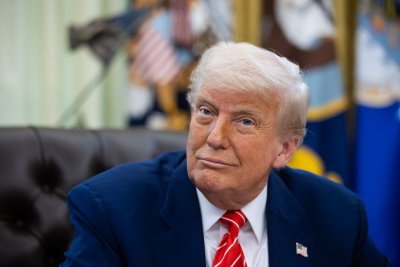
June 4 (UPI) — President Donald Trump on Wednesday issued a proclamation to “fully restrict and limit” entry of people from 12 foreign countries starting Monday.
Citing national security concerns, Trump issued the ban on nationals from Afghanistan, Burma, Chad, Republic of the Congo, Equatorial Guinea, Eritrea, Haiti, Iran, Libya, Somalia, Sudan and Yemen.
Also, he partially restricted and limited entry from seven countries: Burundi, Cuba, Laos, Sierra Leone, Togo, Turkmenistan and Venezuela.
Of the 19 named nations, 10 are in Africa.
“These restrictions distinguish between, but apply to both, the entry of immigrants and nonimmigrants,” the order states about the two designations,” the proclamation reads.
There are exceptions for lawful permanent residents, existing visa holders, certain visa categories and individuals whose entry serves US national interests.
“As President, I must act to protect the national security and national interest of the United States and its people,” the proclamation reads. “I remain committed to engaging with those countries willing to cooperate to improve information-sharing and identity-management procedures, and to address both terrorism-related and public-safety risks. Nationals of some countries also pose significant risks of overstaying their visas in the United States, which increases burdens on immigration and law enforcement components of the United States, and often exacerbates other risks related to national security and public safety.”
On his first day in office on Jan. 20, Trump signed an executive order that it is the policy of the United States to “protect its citizens from aliens who intend to commit terrorist attacks, threaten our national security, espouse hateful ideology, or otherwise exploit the immigration laws for malevolent purposes.”
Secretary of State Marco Rubio was ordered to compile a list of countries “for which vetting and screening information is so deficient as to warrant a partial or full suspension on the admission of nationals from those countries.”
The proclamation said: “Some of the countries with inadequacies face significant challenges to reform efforts. Others have made important improvements to their protocols and procedures, and I commend them for these efforts. But until countries with identified inadequacies address them, members of my Cabinet have recommended certain conditional restrictions and limitations.”
CNN reported Trump decided to sign the proclamation after the antisemitic attack in Boulder, Colo., though the system didn’t come to the United States from the restricted countires.
Mohamed Sabry Soliman, 45, of Colorado Springs, has been charged with a federal hate crime and he is facing 16 state counts of attempted murder on Monday. Soliman, an Egyptian national who spent time in Kuwait, entered California in August 2022 on a B2 visa that expired in February 2023 and his asylum claim was pending.
During his first term, Trump banned travel by citizens of predominantly Muslim countries, including Iraq, Iran, Libya, Somalia, Sudan, Syria and Yemen. Amid legal challenges, it was modified and upheld by the Supreme Court in 2018.
When President Joe Biden took office in 2021, he repealed it.